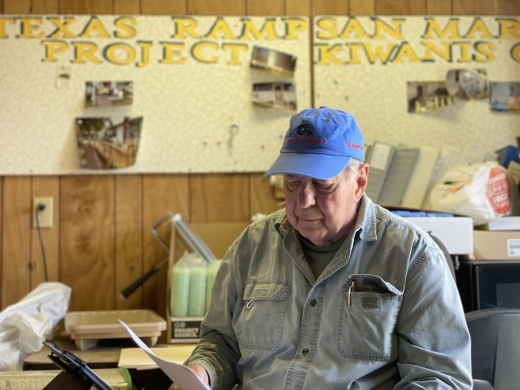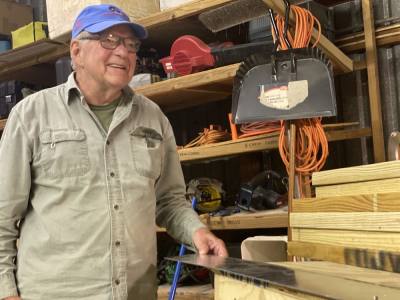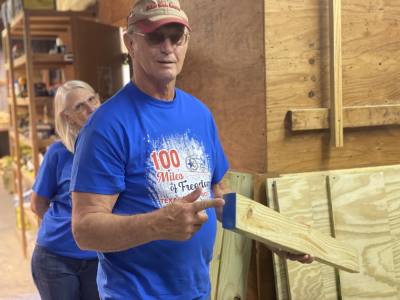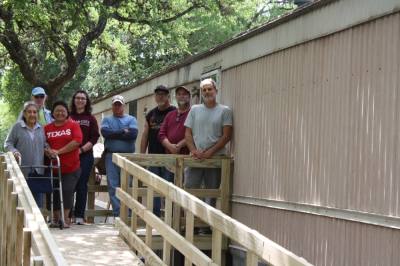A former hospital administrator, Nelson has been the designated coordinator for the Hays County chapter of the Texas Ramp Project for almost two decades.
Through donations and volunteers, local chapters of the TRP throughout Texas build ramps for disabled people and have so far built more than 20,000 statewide since its creation.
“There are people out there that really don’t have any family to help them,” Nelson said. “Every one of our ramps has got a story.”
Originally founded by John Laine in 2006, the Texas Ramp Project emerged from the Dallas Ramp Project, for which Laine served as volunteer director from 1989-2005.
Branches have formed in counties throughout the state, and Nelson said he has helped run the Hays County branch out of a building at 611 Staples Road in East San Marcos since 2003, back when it was still an extension of the DRP.
Eventually the chapter in Hays County became the Texas Ramp Project, and Nelson said he has watched it continue to thrive due to copious amounts of volunteers and donations.
There are several entities that feed volunteers to the local TRP chapter, including a group at Texas State University called the Construction Student Association.
“What they’re doing is they’re getting their degrees in construction and project management,” Nelson said. “There’s about 100 of them or more in that program, and they would try to build at least one a month.”
However, Nelson said he owes much of the local program’s productivity to two key volunteers, Gary and Nancy Strunk, who joined the TRP in 2014.
“You see a guy trapped in his house, and you’ve got to go help him immediately,” Gary Strunk said. “If you’re by yourself and you’re in a wheelchair and there’s an 8-inch step, that’s Mount Everest.”
Another blessing to the group’s overall productivity, Nelson said, is the mini warehouse headquarters in east San Marcos.
It is there that 60% of the work is done to construct the ramps for client referrals, and Nelson said that allows work at people’s homes to take a maximum of four hours.
Referrals for patients who need ramps must come from third-party healthcare providers such as home health agencies or hospitals.
“They find these people that don’t really have anybody helping them, or they don’t have kids around. They’re kind of on their own,” Nelson said. “Then we go out and we survey [the house], and we determine the need—how urgent it is.”
Once need is established, Nelson and his team conduct a survey and draw up a list of materials needed.
Depending on the number of volunteers allotted to a build, a 45-feet-long ramp can be completed on site in as little as two hours, Nelson said.
One factor that has proven challenging to the TRP recently has been the sudden skyrocketing cost of lumber due to the booming housing construction market.
As one example, Nelson provided an itemized bill comparison of the cost to construct an 8-feet section of ramp. In February 2020, the total cost was $119.29. In March of this year, the price tag nearly doubled to $235.79.
Since the TRP relies on donations in order to purchase lumber, Nelson said Laine has been advising local chapters to temporarily slow down production until the market stabilizes.
Still, Nelson and the Strunks have continued to oversee the construction of as many ramps as they can, in spite of obstacles that have also included the COVID-19 pandemic.
“The thing I love about the Texas Ramp Project is they go anywhere,” Nancy Strunk said. “If the need is there, they don’t turn anyone down. If you can get them out of their house, that’s all that matters.”
Texas Ramp Project
611 Staples Road, Ste B, San Marcos
512-353-0314
www.texasramps.org
611 Staples Road, Ste B, San Marcos
512-353-0314
www.texasramps.org








